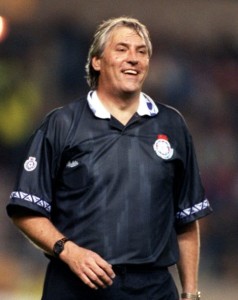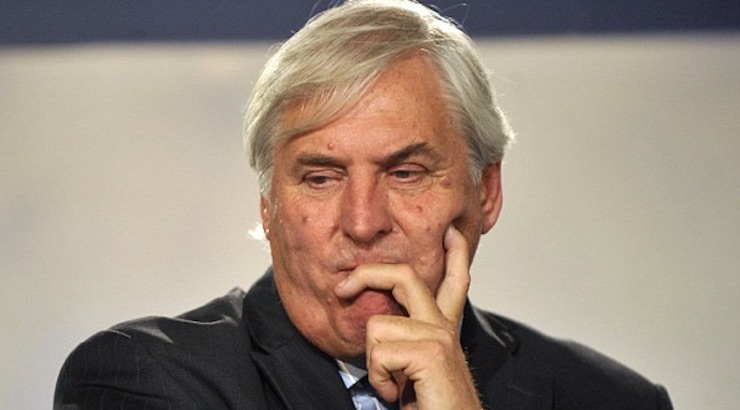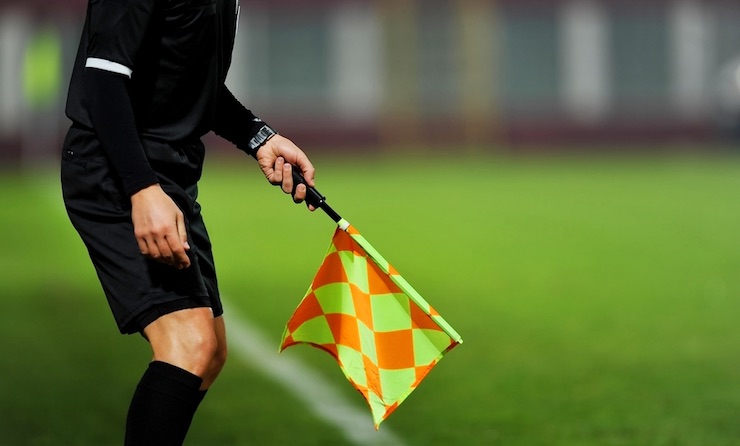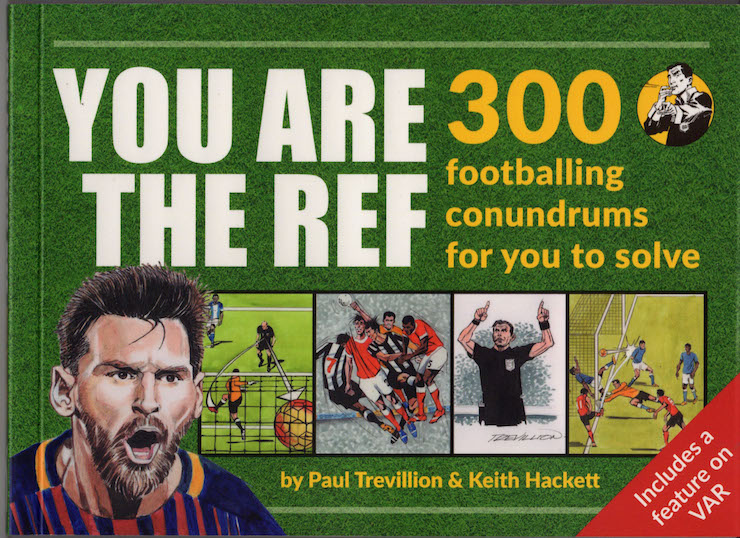World-Class Referee Keith Hackett Wants Everyone To Understand the Role of the IFAB
 In his latest column, longtime referee Keith Hackett discusses the impact of being a referee and the laws of the game.
In his latest column, longtime referee Keith Hackett discusses the impact of being a referee and the laws of the game.
Hackett started officiating on the sidelines in the 1960s in England and is considered one of the top 100 referees of all time in a list maintained by the International Federation of Football History and Statistics (IFFHS).
A FIFA referee, Hackett has had the honor of refereeing at some of the most important soccer matches in history including the FA Cup Final at Wembley, European Championships as well as countless EPL games of Manchester City, Manchester United, Arsenal, Everton, Liverpool, QPR, West Ham United as well as at the Olympics.
We all know that it is the responsibility of the referee to control a soccer match by applying the Laws of the Game.
I am sure that many stakeholders in the game believe the ultimate responsibility is with U.S. Soccer.
This article is aimed at enlightening people who are not aware of the organization that is truly responsible.

The International Football Association Board (IFAB) is made up of the four British football associations (England, Scotland, Wales and Northern Ireland) and FIFA. Their mission is to serve the world of football as the independent guardian of the Laws of the Game.
After many years, the IFAB officially became registered in 2014 as an independent operation. This set off a new beginning for the association and was accompanied by a new administration, and most importantly, statutes that re-defined their purpose.
The Football and Technical Advisory Panels FAP and TAP, was launched which includes members from the football world bringing in their experiences and perspectives as former players or referees.
The Laws of the Game book has undergone a major overhaul, which reflected the transformation of the organization itself. The 2016-2017 revision is a true milestone and the adopted amendments symbolized a bolder step into the future of football and the Laws of the Game.
The Mission of the IFAB
The mission of The IFAB is to serve the world of football as the independent guardian of the Laws of the Game. As the only body authorized to decide and agree on changes to the Laws of the Game, they listen to the football community, with the goal to improve and develop the game for players, match officials and fans while protecting and strengthening the spirit and simplicity of soccer.
Transparency, accountability and inclusivity are the core values of the IFAB.
The IFAB serves the entire global football community. The organization amends the Laws of the Game accordingly, and in a democratic way. The goal is to ensure the future health and stability of football while respecting the core values of the game.

The Responsibilities of the IFAB
The IFAB regularly convenes to debate, define, manage and make amendments to the Laws of the Game.
The changes can only be introduced during the Annual General Meeting (AGM), which is normally held every February or March in England, Scotland, Wales and Northern Ireland in a rotation. The AGM can be held in other locations, as decided by FIFA in years when the FIFA World Cup™ is held.
The IFAB works to ensure that the Laws of the Game remain fair and adapt to important changes in the game.
The board acknowledges new technologies which can help to improve the game and make football fairer for all. At the same time, The IFAB believes it is essential to keep the Laws of the Game as simple and non‐intrusive as possible, in line with the true spirit of the game.

What is amazing is the makeup of the panel members that make the decisions.
- The Football Association
- The Football Association of Wales
- The Scottish Football Association
- Northern Ireland Football Association each have one vote.
FIFA represents the remaining 207 nations and has four votes when the decision-making process kicks in on an annual basis.
TBT – The First Meeting of the IFAB
The first official international football match was played by the competing teams of England and Scotland in 1872.
This is roughly the time when organized football was given expression in the formation of four British football associations.
It soon became evident that a common set of rules was needed to ground the Game.
The International Football Association Board (IFAB) first met on 2 June 1886 in London, England,
The event attended by two representatives each from the English, Irish, Scottish, and Welsh associations.
The IFAB soon became established as the guardian of the unified Laws of the Game and tasked with preserving, monitoring, studying and amending football rules.
To this day the Laws of the Game can only be changed by the IFAB.

Fun Facts on The Laws of the Game:
The Laws of the Game changed significantly over time.
The penalty kick and goal nets were introduced in 1891.
Between 1896 and 1899 it was agreed that each team should have 11 players on the field, that a match is to last for 90 minutes and that the field ought to have the dimensions it still retains today.
Did you know that in the 1970’s, Red and Yellow penalty cards were introduced?
The latest changes in the Laws of the Game came out June 1, 2018, ahead of the 2018 FIFA World Cup™ in Russia. Laws of the Game 2018.
The On Going Debate on The Laws of the Game:
There is, of course, continual discussion about the Laws of the Game and one area that often creates a problem is how individual countries interpret them.
This is a role that the IFAB, with its newly found independence, can police. And. the IFAB can adapt to embrace the future.
According to the IFAB site, changes in the Laws of the Game are made not only to make football safer, more enjoyable and fair, but also to better adjust the game to the modern world and make the most of the available technology, which is particularly evident in the recent changes.
I know that former Premier League referee David Elleray has played a major role in the role out of the Video Assistant Referee.
Keith Hackett is the author of the new You Are the Ref 300 Footballing Conundrums, the You Are the Ref, the Ultimate Illustrated Guide to the Laws of Football and the You Are the Umpire. The amazing illustrations are by Paul Trevillion.
You Are The Ref is a cult classic comic strip in England. SoccerToday is thrilled to bring this to our American soccer audience and share these stunning portraits of soccer stars from all eras. For anyone who has ever questioned a ref’s eyesight or grappled with a clearly ‘wrong’ call, now it is your turn!
According to David James, “Anyone who loves the game knows You Are The Ref. Paul Trevillion’s brilliant art has been around for generations!”






